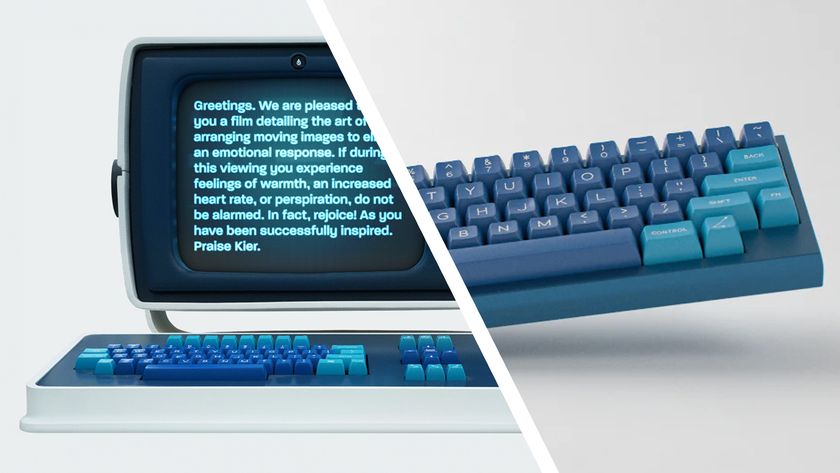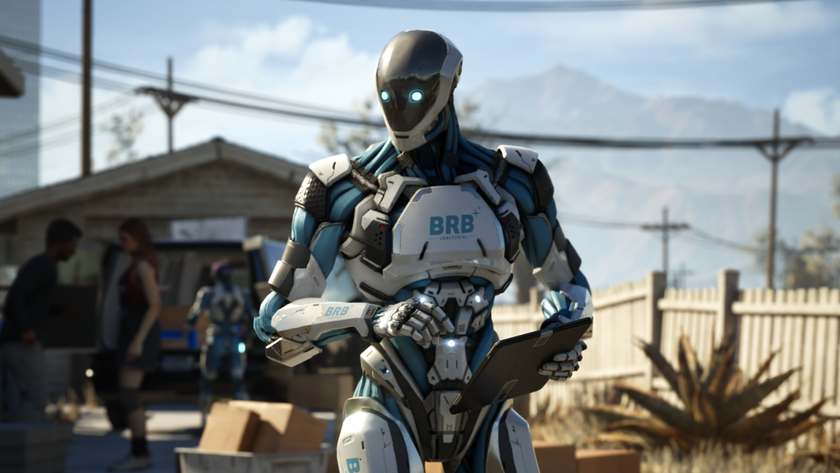TechRadar: The BBFC interview
The future of age-ratings on videogames
Mark Dawson: I’ve been playing games for around thirty years now. From the ZX81, Commodore 64 through to the Atari ST, PC, the PlayStations, the Xboxes… I’ve always been a gamer. I still play loads of games for pleasure, outside of work!
TechRadar: So how does PEGI go about rating games? There seems to still be some confusion amongst gamers, parents and consumers generally about that.
David Cooke: Okay, well obviously in a sense I shouldn’t speak for PEGI, but I do have a reasonable knowledge and I’ll do my very best not to misrepresent what it is they do.
They have a quite detailed, complex questionnaire which is completed by people they call ‘coders’ who are based within games publishers. Then it starts to get complicated because PEGI is a complex organisation.
There are basically three groups of people involved in PEGI. There’s ISFI – International Software Federation Europe – they are the owners of the PEGI system. Then there is NICAM the Dutch Film Classification body that has a contract with ISFI to run the PEGI system on behalf of the different European countries.
NICAM in turn has given a sub-contract to an organisation called The Video Standards Council which is Peter Darby and Laurie Hall. They, confusingly, are a UK-based organisation but they are taking European-level decisions as part of the PEGI system.
So, very crudely, the way it works is that NICAM do the games up to and including ‘12’ and VSC do the ‘15s’ and ‘18s’ across Europe, except, of course, they don’t do the ‘18s’ for the UK, as the BBFC does those (and not, obviously, under the PEGI system).
Get daily insight, inspiration and deals in your inbox
Sign up for breaking news, reviews, opinion, top tech deals, and more.
The PEGI ratings system is questionnaire based, which means that you can’t take into account questions of context or tone, in the way that our examiners such as Mark can when he is classifying a game here, which we think is a drawback with PEGI. We understand it, because they are trying to do something that runs across Europe, so they are trying to stop individual counties and local cultural sensitivities coming in and making the whole thing fragment.
The degree of actual testing varies in accordance with what kind of age the game is coming in at. The VSC tests the 15s and 18s and NICAM have some recently ex-Amsterdam University students that do some testing for 12s. They don’t test for the lower-than-12s, they just go by questionnaire.
Whereas here at the BBFC everything gets played. We see two sorts of things. Either things that come to us because there is gross violence in them - so roughly the equivalent of an ‘18’, although they don’t always end up with an 18-certificate - or the second category of things that we see are games that contain certain kinds of linear material.
These are genereally games which have video footage in them – so games linked to blockbuster films such as, for a recent example, The Golden Compass – which has the effect that they lose their exemption from the Video Recordings Act, so that’s why they come here as well. And that’s why we have knowledge of games of all levels – and not just the ‘18’s – because of that second thing, which brings us in a kind of smattering of games at junior levels as well.
In a nutshell, the big differences are that the BBFC can take account of context and tone, which can sometimes lead to a higher classification. Often though, it leads to a lower age-classification. We sample more thoroughly and with more expert games players – and with all due respect to all the characters I’ve been mentioning, Mark and our games examiners are much better gamers than anybody in the PEGI system.













